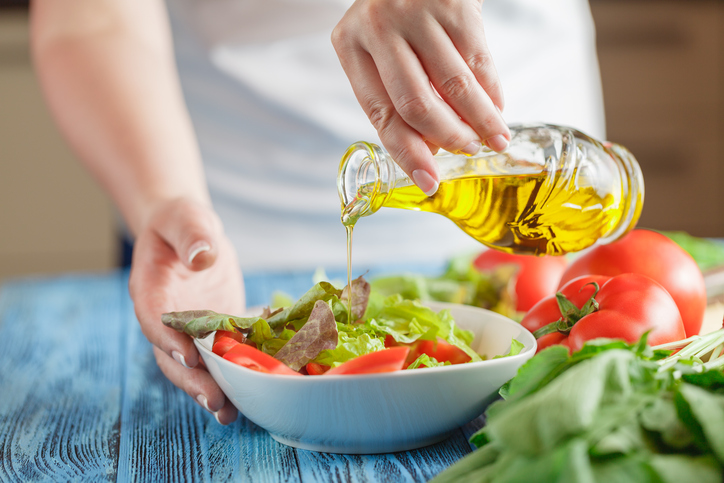Call us at: 314-205-6654
Nutrition
While exercise is a vital part of maintaining good health, a well-balanced diet is just as important.

Control your portions and create the perfect plate with these tips:
Enjoy: Fruits and vegetables , Whole grains, Fish, Lean meats
Avoid: Processed foods, Snack foods, Sugary drinks, Alcohol
- Draw an imaginary line down the center of your plate.
- Draw a second imaginary line through one of the halves – you now have three sections.
- Load up the largest portion (or half the plate), with non-starchy vegetables, like salad, green beans, broccoli, cauliflower or tomatoes.
- Fill one of the smaller sections (a quarter of the plate) with a starchy food, like potatoes, pasta (preferably whole grain!), rice or corn.
- Fill the remaining small portion (a quarter of the plate) with protein, like a lean meat, fish, poultry, tofu or an egg white omelet.
- Add a glass of milk, yogurt or a small whole-grain roll with some pieces of fruit and voila – you have set the perfect plate!
Not sure where to start? Here are a few quick tips:
- Say yes to carbs (really!). Carbohydrates provide 45-60% of your energy levels. Opt for good carbs, such as sweet potatoes, brown rice, quinoa, legumes, beans, nuts and seeds, high fibers, 100%whole grains, raw, whole and fresh fruits and vegetables.
- Don’t forget the protein. A daily source of protein is crucial for the body’s regulation and maintenance. In addition to the meaty sources — chicken, turkey, duck, lamb, beef, or buffalo—you can also find protein in other places, such as eggs, fish, and dairy. Even bee pollen protein digests easily and is rich with many other nutrients.
- Stay hydrated. The easiest to do — and often the hardest to remember. Whether it’s a little exercise or a lot, hydration is key to keeping your skin beautiful, digestive system running smoothly, and energy levels high.
